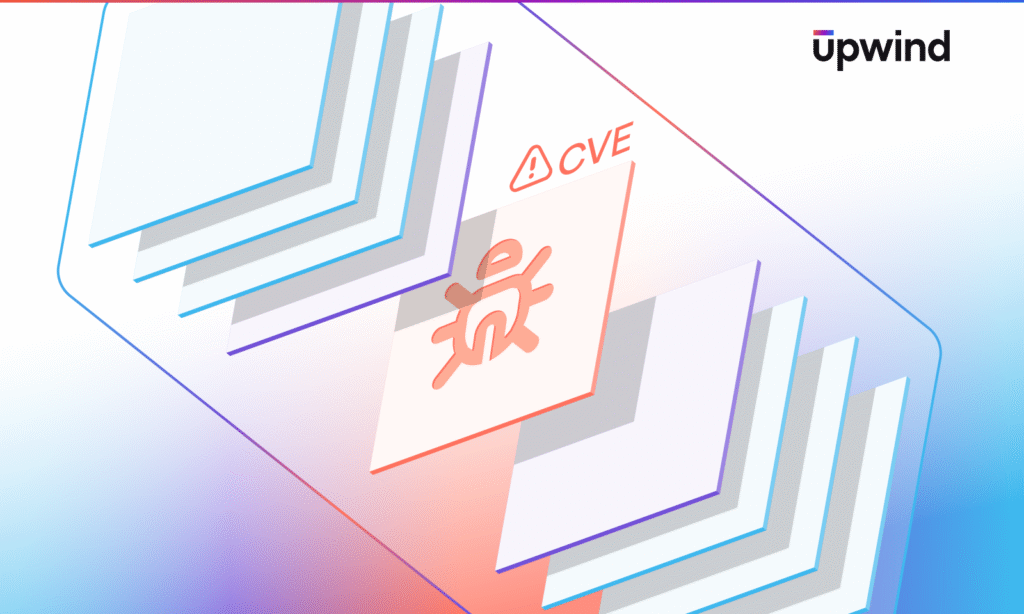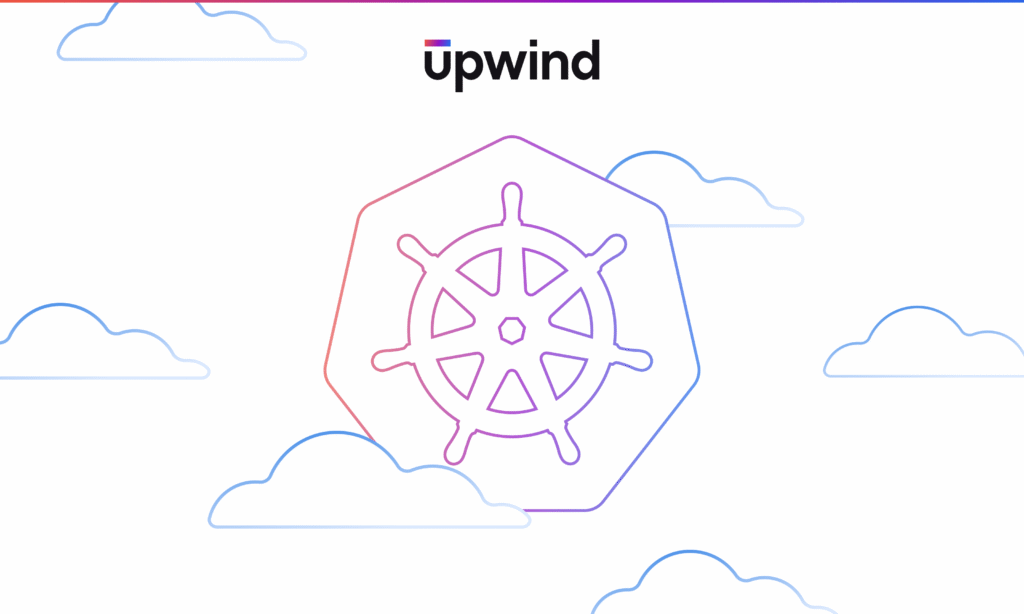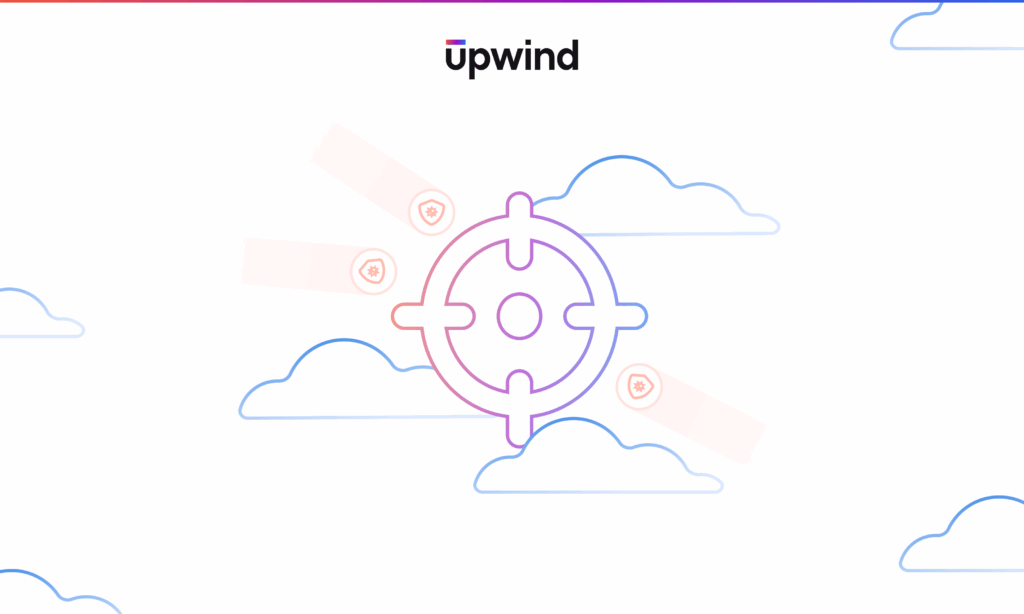
Upwind Delivers Security Feedback where Developers Already Work, in GitLab
We’re thrilled to announce that Upwind now automatically posts concise, runtime-informed vulnerability feedback directly on GitLab merge requests when enabled in your CI/CD pipeline.
Developers spend most of their time in merge requests, where they also need security context. As part of our Shift Left capabilities, Upwind brings prioritized, contextual findings into the GitLab review interface so engineers see issues at the exact moment they can change code.
After teams grant minimal permissions, Upwind scans run as part of the Gitlab merge request pipeline, findings are enriched with runtime signals, and Upwind then posts comments with the relevant data automatically. This inline delivery preserves developer velocity while making it faster and simpler to resolve problems before they propagate downstream.
What is Shift-Left Security and Why Does it Matter?
Shift-left security focuses on identifying vulnerabilities at build time, when fixes are smallest and least disruptive. If a problem is discovered during code review, the author already understands the design, tests, and tradeoffs, which typically leads to more precise, lower-cost corrections. Early, in-context feedback also reduces context switching: instead of leaving the review to gather logs or reproduce an environment, developers receive the evidence they need right in the merge request. That immediacy encourages ownership and drives consistently faster remediation.
Shift-left scanning on its own, however, can produce theory-only results. Without visibility into how code behaves in a given deployment, scanners may report issues that are unreachable or irrelevant. Missing reachability, configuration, and runtime data makes prioritization and reproduction difficult, which increases false positives, wastes triage time, and risks eroding developer trust.
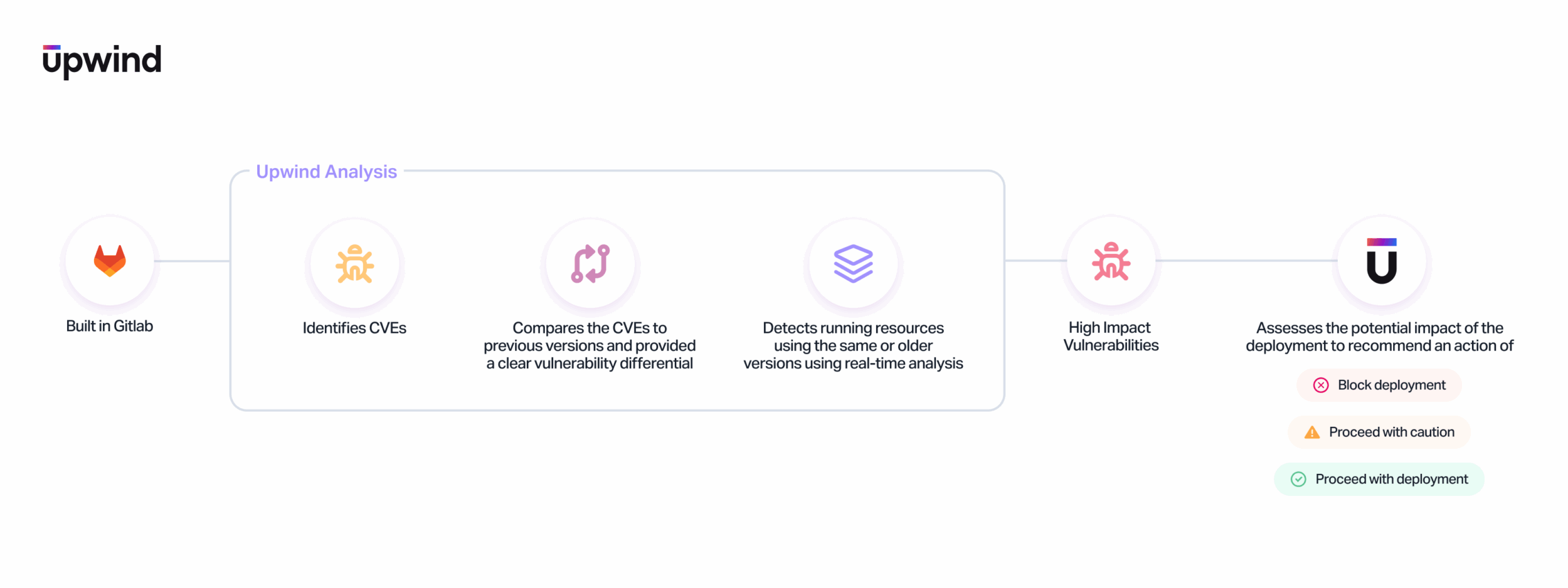
From Scan to Signal: Upwind Verifies Findings with Runtime Context
Upwind addresses this shortcoming by combining early detection with runtime validation. Upwind surfaces potential issues in CI and during code review, then cross-checks findings against what’s actually running: execution reachability, current configuration, and corroborating logs or traces. This “left and right” approach filters out noise and confirms which vulnerabilities are practically exploitable in your environment. Teams spend less time chasing non-issues, and conversations between security and engineering focus on the handful of problems that require action.
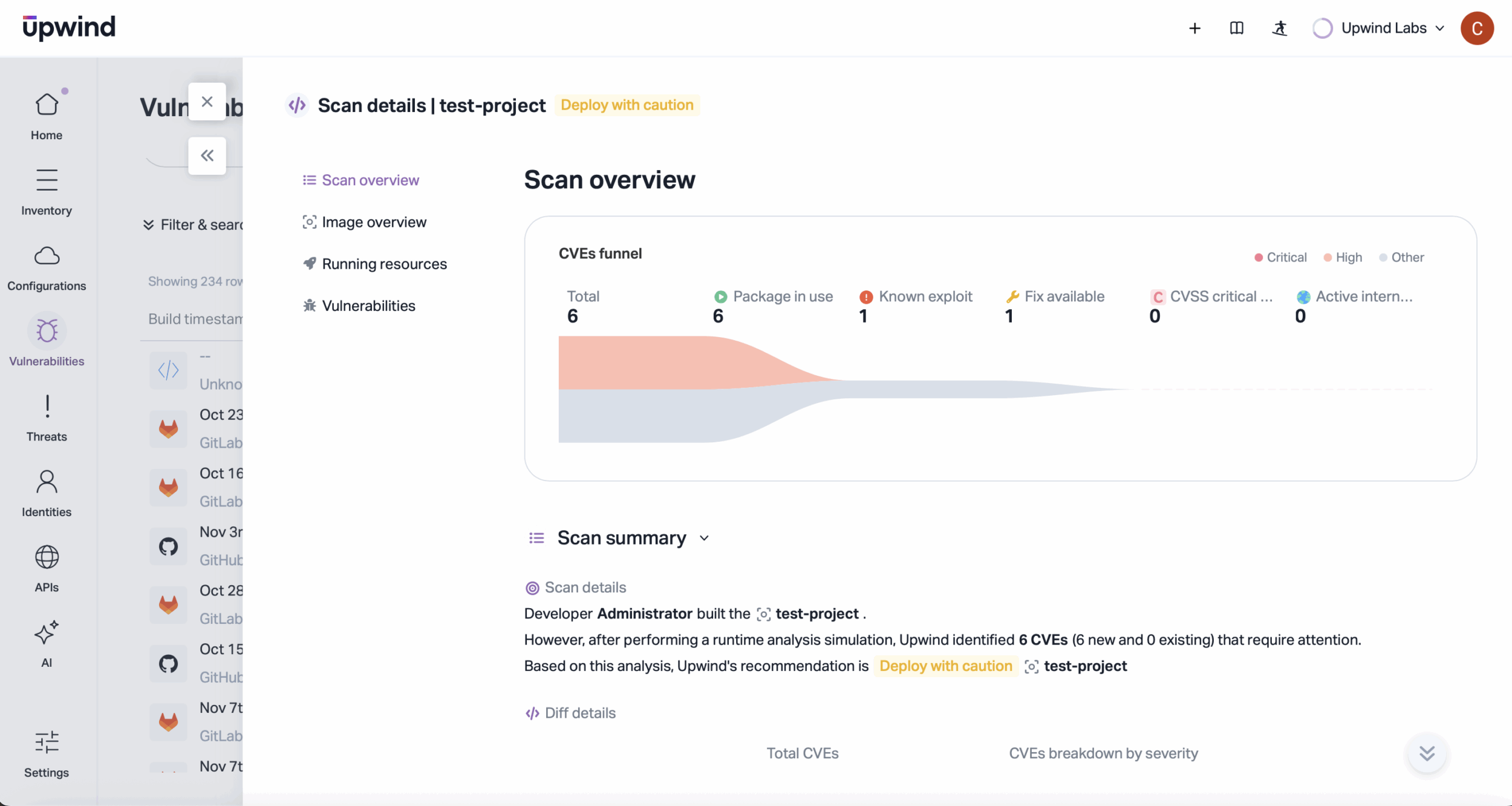
GitLab Pull Request Comments: Runtime-Backed Insights that Prioritize Real Risk
Starting today, Upwind embeds runtime-informed evidence directly into GitLab Merge Request so a security finding is actionable the moment a reviewer sees it. Each comment points to the exact package and version, summarizes severity in plain language, and attaches the runtime signals that matter. The comment delivers both a clear description of the issue and if a fix is available based on runtime signals, without forcing developers to leave the pull request.

Delivering runtime-backed evidence inline removes the friction that typically slows remediation: developers can reproduce or dismiss findings in place, apply focused fixes, and avoid chasing theoretical or unreachable issues. This lowers triage time and false positives, reduces back-and-forth between security and engineering, and increases developer confidence and ownership. The net result is faster, more reliable remediation, less noise for security teams, and engineering effort spent only on the problems that actually pose risk.
Upwind’s GitLab Pull Request Comments are built for low-friction adoption. Once the Upwind GitLab integration is configured, comments appear automatically for vulnerabilities detected during merge request pipeline runs. Each comment is concise and actionable, with remediation guidance and a link back to the Upwind console for full triage history and policy management.
Continuous, Measurable Security that Respects Developer Workflows
By combining automation, runtime enrichment, and inline delivery, Upwind’s GitLab pull request comments change how security is experienced day to day. Developers get fewer, higher-confidence alerts right where they review code; security teams gain a scalable, reliable way to drive remediation earlier without micromanaging engineering; and organizations realize measurable improvements in time-to-fix and remediation cost. Because the feature integrates directly into GitLab and needs only minimal permissions, teams can adopt it quickly and start seeing value immediately.
Final Thoughts
GitLab pull request comments from Upwind put prioritized, runtime-backed security feedback in the hands of developers at the moment it matters most: code review. Delivering fewer, more meaningful alerts directly into Merge Requests helps teams remediate faster, cut noise, and maintain program-level visibility without slowing development.
Want to see Upwind’s GitLab Pull Request Comments working in your environment? Book a customized demo and we’ll walk through an integration walkthrough, show runtime enrichment in action, and tailor comment behavior and policy tuning to your team’s workflow. We’ll also review a sample GitLab CI snippet and answer any questions about rollout or adoption.

